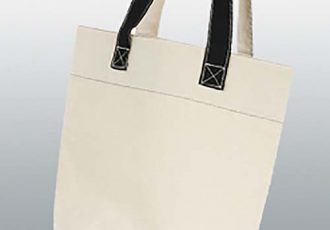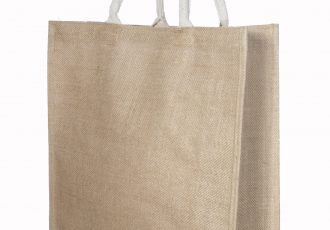Green groceries: Shopping the eco-friendly way
Posted on April 18, 2019 at 7:30 AM
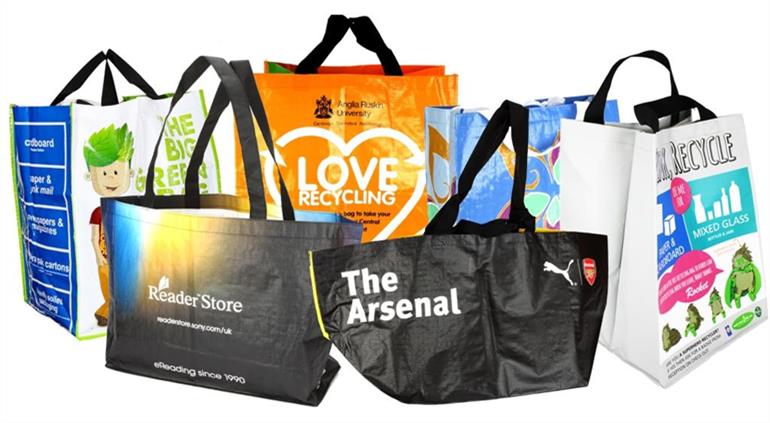
Last time, we saw how the UK’s bag tax was actually working and concluded that despite efforts to cut the use of plastic bags, the increased usage of heavy-gauge plastic bags-for-life was actually failing the environment.
The bag tax wasn’t meant to stop people using bags, only the plastic they’re made from. Pollution, wildlife damage and finite resources are forcing us to find alternatives, yet the current bag tax is not leading to the use of greener materials.
So what alternative promotional bags are available to replace the cheap carrier bags lining our shores, stuffing landfill sites and drain our precious natural resources?
There are many alternatives to the printed carrier bags found at supermarkets and high street stores. But the choice of replacement depends on the context.
In some cases, switching from low-cost plastic shopping bags to eco-friendly alternatives may not be viable, so we also aim to provide solutions for smaller businesses.
As we saw last time, a big issue is the low value that consumers place on 10p bags-for-life, which is why so many end up in the bin.
Increasing the tax this wouldn’t cut the manufacture of plastic carrier bags, but studies show fabric shopping bags – including Cotton, Canvas or Jute – aren’t used as bin liners, and are actually seen as an “asset”.
The design and the material of such a bag contributes to the amount of re-use; the most-used bags feature custom prints, with the rate of re-use goes up in line with the attractiveness of the design, not only for shopping trips, but day-to-day.
So, what factors improve re-use? Below we outline eco friendly solutions to the generic branded carrier bags available in your local supermarket, restaurant or clothing store. Whatever your need Bags of Ideas has custom carrier bags ready to print.
Jute Bags
The first eco-friendly material is jute, a heavy-duty material that is a popular choice to replace the single use bag. This style – with a rigid structure, and strong build – is particularly suited to supermarket shopping, allowing for easy packing and assurance with heavy loads. Jute bags are readily available in supermarkets, normally at a minimal cost to the consumer, but are rarely sold in retail without a custom design and print. A well thought out, on-trend and appealing design often leads to high demand. An example is gift bags with branding for charities such as Help for Heroes or Comic Relief. Plus, as the consumer is paying for the bag, the likelihood of re-use is greatly increased. By simply switching from plastic to a natural fabric there is little chance of the bag being used to collect and dispose of rubbish. As a retailer trying to encourage consumers to go green, never neglect attractiveness: simply printing your company logo may not be enough. Bespoke options being endless, there’s already a wide range of jute bags on the market. Trying to push an eco product based on profit margins may backfire – think more about the intended use.Cotton Bags
“Cotton shoppers” is a generic term for bags made out of cotton or canvas – simply a heavier duty cotton). In some ways they are even more attractive than Jute, including the obvious fact Cotton is softer, lending themselves more to clothing retail than food. Jute still wins on strength and robustness, but Cotton is better for printed carrier bags used in clothing retail where the alternative is a printed plastic bag. One noticeable difference between Cotton and Jute is the pattern of re-use. Jute bags are mostly linked to supermarket shopping whereas Cotton appeals more for trips to the office or gym, high street shopping or as a school bag. It’s also worth pointing out that end-user cost is a consideration. Compared to Jute, the wholesale price of Cotton bags is lower, yet they usually bear a higher retail price tag. Yet the biggest source of reuse comes from giveaways at trade shows and education fairs, suggesting the high price tags adopted by retailers may not the right direction to go. Unlike supermarkets, high-street retailers often feature eco bags as part of their brand, and they are sold as a fashion item at consistent prices. The comparison below shows a jute bag-for-life, from a supermarket, against a canvas bag for sale on the high street, alongside the purchase price for similar bags.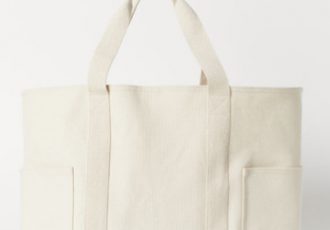
Retail Price £18 (H&M)
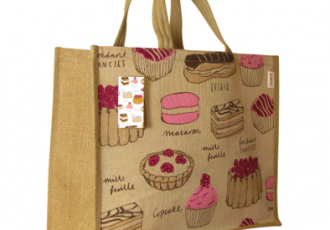
Retail Price from £3-5 (M&S, Tesco)
The price difference is huge, and no doubt discourages investment. Maybe if high street retailers took the same view as supermarkets, there would be more commitment to the use of eco-friendly bags-for-life.

